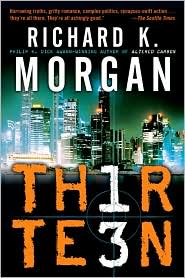I love these angry white teabaggers going after democratic congresspeople. They're so laughably moronic - what's not to love. With all the outright thievery of the bailout and the uncompetitive insurance industries running woefully inefficient (77 cents on the dollar goes to care) systems that all resemble ponzi schemes writ large -- there comes a point where you start looking around and you realize it all seems to be coming apart at the seams.
Thus I give you Jared Diamond:
Some people may reason correctly that they can advance their own interests by behavior that is harmful for other people. Economists term such behavior "rational," even while acknowledging that morally it may be naughty. The perpetrators are often motivated and likely to get away with their rational bad behavior, because the winners from the bad status quo are typically concentrated (few in number) and highly motivated because they receive big, certain, immediate profits, while the losers are diffuse (the losses are spread over large numbers of individuals) and are unmotivated because they receive only small, uncertain, distant profits from undoing the rational bad behavior of the minority.I'm going to have a beer now.
A typical example of rational bad behavior is "good for me, bad for you and for the rest of society" — to put it bluntly, "selfishness." A few individuals may correctly perceive their self-interests to be opposed to the majority's self-interest. For example, until 1971, mining companies in Montana typically just dumped their toxic wastes of copper and arsenic directly into rivers and ponds because the state of Montana had no law requiring mining companies to clean up after abandoning a mine. After 1971, the state of Montana did pass such a law, but mining companies discovered that they could extract the valuable ore and then just declare bankruptcy before going to the expense of cleaning up. The result has been billions of dollars of clean-up costs borne by the citizens of the United States or Montana. The miners had correctly perceived that they could advance their interests and save money by making messes and leaving the burden to society.
A further situation involving rational behavior and conflicts of interest arises when the interests of the decision-making elite in power conflict with the interests of the rest of society. The elite are particularly likely to do things that profit them but hurt everybody else, if the elite are able to insulate themselves from the consequences of their actions. Such clashes are increasingly frequent in the modern U.S., where rich people tend to live within their gated compounds and to drink bottled water. For example, executives of Enron correctly calculated that they could gain huge sums of money for themselves by looting the company coffers and harming the rest of society, and that they were likely to get away with their gamble.




















No comments:
Post a Comment